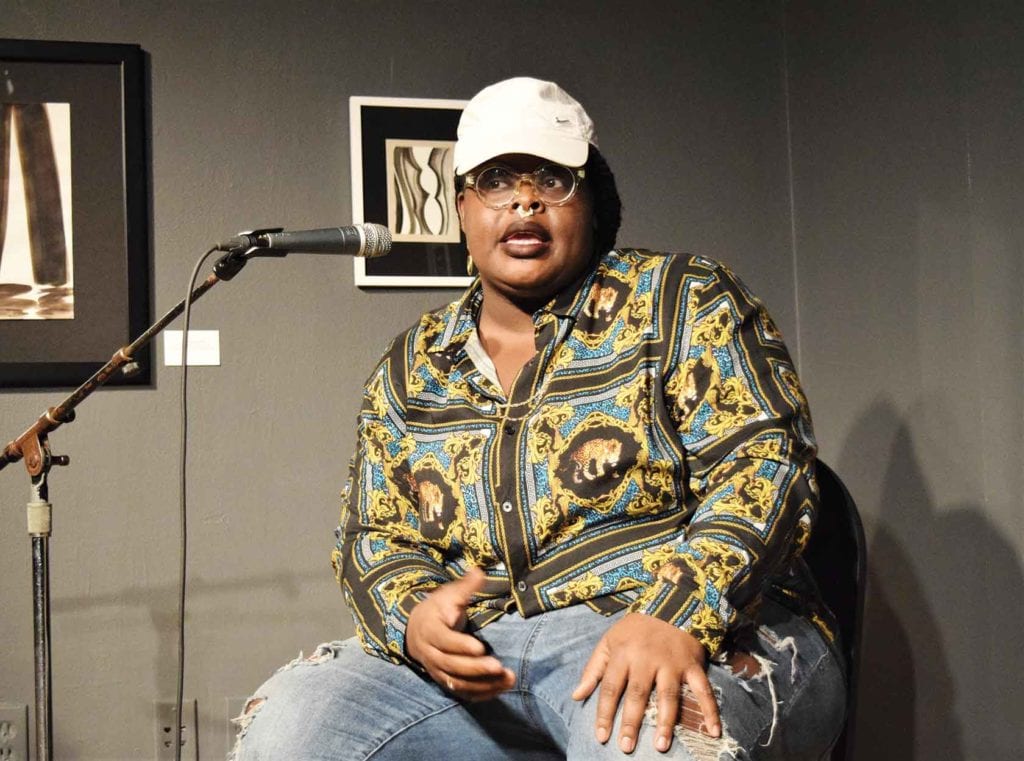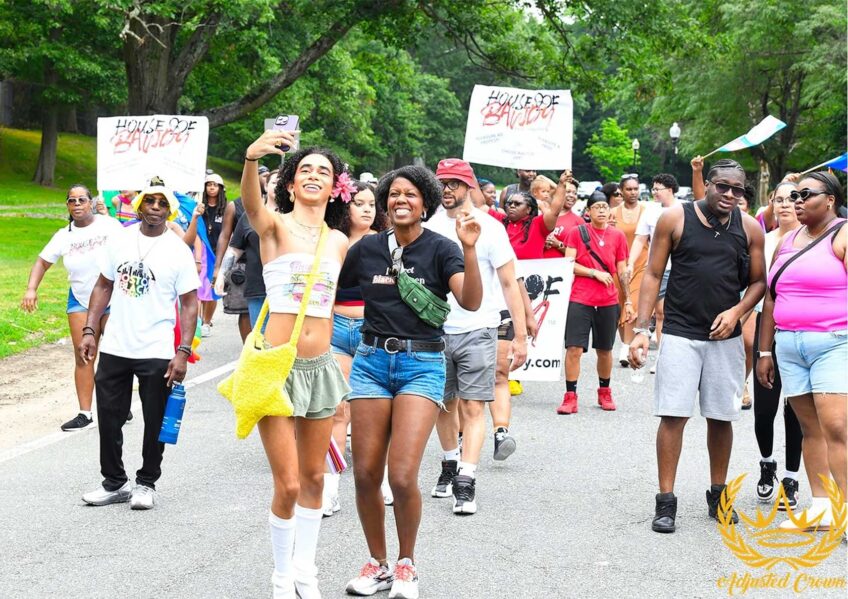
A lineup of interdisciplinary and multimedia artists with diverse gender and racial identities, including Boston’s current poet laureate Porsha Olayiwola, performed at the second annual “Poetry is Busy: En Voz Abierta/Into the Unfolded Voice” show at the Villa Victoria Center for the Arts in the South End last Friday.
Yara Liceaga-Rojas, an Afro-Caribbean poet, performer and educator from Puerto Rico, is the curator of the event. According to Liceaga-Rojas, “Poetry is Busy” was created by Mala Pastor in 2008 in Puerto Rico and Liceaga-Rojas coordinated similar shows for the Fundación Nacional Para la Cultura Popular in San Juan, and “it just kept going,” she said.
“We unfold our voices to say what is violent to us or heals us,” said Liceaga-Rojas during the show’s introduction. “Femme, queer, trans, nonbinary and cisgender women show their resistance and healing works based on their experiences and worldviews in a hetero-patriarchal social climate.”
With music, poetry and performance art, “Poetry is Busy” provided an interactive experience for audience members, who were asked to change locations twice throughout the night to observe two of the performances and stand face-to-face with the artists’ emotions in an intimate setting.
Elsa Mosquera Sterenberg, arts programs director at Inquilinos Boricuas en Accion, which operates Villa Victoria Center for the Arts, said this year’s event was dedicated to Latina artists. “We’re excited to host amazing people from all disciplines of the arts, including a very special poet and writer from Puerto Rico,” said Sterenberg, referring to Raquel Salas Rivera, last year’s poet laureate of Philadelphia.
The lineup also included Lilly Evelet, a mixed indigenous woman and interdisciplinary artist; Karishma Javier, a singer with an extended vocal range and ability to perform in 10 languages and 17 genres; and Bashezo Boyd, who goes by Bashezo, a multidisciplinary installation and performance artist who blends race and queer theory with African diaspora traditions and aesthetics.
Olayiwola, in addition to being Boston’s poet laureate, was the 2014 individual world poetry slam champion and 2015 national poetry slam champion. She identifies as a black, queer and hip-hop feminist and is a native of Chicago.
Olayiwola performed an excerpt from a choreo-poem called “Black and Ugly as Ever.” Her performance began with song-like verses that repeated “Stay out the sun” — advice given to her while growing up in an attempt to minimize the darkness of her skin.
The poet continued with a story from her school days: a fight between her and girl named “Latasha” over a boy named “Michael” who was a “light-skinned boy with green eyes.”
“We opened our flesh red on pavement. Lost our teeth to the grass. Swung each other around … even though Michael with his emerald eyes couldn’t stand the sight of neither one of our dark-skinned asses,” she said.
Her style of self-deprecation continued as her performance concluded with racist “I’m so black…” statements, off-putting to the audience as she feigned laughter.
“I’m so black, I never got my college degree. I’m so black, I got pulled over on the passenger side. I’m so black, I’m ugly,” she said.
The audience then moved to the art center’s gallery space for Evelet’s performance. Evelet began unpeeling multiple layers of clothing, which alternated between typical male and female styles of dress, with the help of audience members. Meanwhile, an audio track played in the background with a voice repeating phrases such as, “Man or woman,” “I am neither,” and “I am both.” The performer looked directly at audience members, almost defiantly.
Finally, Evelet stood in the middle of the room, their layers of clothing strewn about, in nude undergarments as they declared, “I am non-binary.”
Back at the original stage space, Javier performed a powerful rendition of “I Dreamed a Dream” a song from the musical Les Misérables, and then an original song in Spanish while playing the guitar. With an upbeat tempo, and a lot of vocal vibrato, Javier’s song fit into the Latin folk genre.
For the second and last time, the audience moved into the gallery space for Bashezo’s performance art piece. The audience did not get to see Bashezo directly however, but instead a cloaked figure, hidden beneath what looked like a pile of colorful rags. The hidden person moved as if dancing, but in eerily staccato movements. A bell could be heard each time the figure moved, and shoes began to fall out from under the rags, piling up under and around the cloaked figure.
Bashezo was born and raised in South Philadelphia and is currently enrolled in an MFA program at Massachusetts College of Art and Design. Common themes in their work include issues around race, gender, sexuality, homo/transphobia and microaggressions.
Salas Rivera, published author of four books, read some of their poems at the show from their most recent book, “lo terciario/the tertiary.” They read the poems first in Spanish, then in English.
The first, “no se cambia una chaqueta por una chaqueta” / “coats are not exchanged for coats,” describes a person attempting to pay down a debt, after working for 50 years. First, they offer their life, but when that’s not enough, they offer up payments from friends, family and neighbors. Finally, the narrator finds an acceptable payment: “You go to philadelphia / to look for the coats much needed in order to pay the debt of your island.”
Salas Rivera also read parts from a triptych poem called “La Independencia de Puerto Rico/The Independence of Puerto Rico,” which they described was written with the intention of expressing hope for the future.
“We are richer than stolen ports, we are more pirates than federal governments,” and “We owe no one shame, we owe no one smallness,” they read. “We are more than what they say, more than what they imagined, and more to this day, than we have imagined.”
And then, “Look at us closely, don’t you see? We are beauty.”







